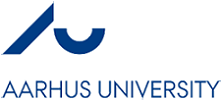Nanoscience

Winter intake start date
2026-02-01
Winter intake deadline
2024-10-10
Nanoscience is an interdisciplinary field of science that deals with understanding and utilising materials and phenomena at the nanoscale – that is, between 0.1 and 100 nanometres. The ability to work on this scale makes it possible to achieve highly improved or completely new functions and properties in a wide range of materials.
The MSc in Nanoscience programme at Aarhus University is open to students with a BSc degree from higher education institutions in Denmark and abroad who have an interdisciplinary background in nanoscience and/or physics, chemistry and molecular biology. The nanoscience degree programme is both practical and research-oriented, and provides the opportunity for completing an MSc project in various areas, including nanomaterials, nanocatalysis, nanobiotechnology, nanomedicine, nanofood, toxicology, and ethical aspects of nanotechnology.
Structure of degree programme
The MSc in Nanoscience programme is 120 ECTS credits. It provides an opportunity to study subjects in the fields of physics, chemistry and molecular biology as well as in specific nanoscience subjects. Through their choice of courses and MSc project, students specialise in one of the disciplines of nanophysics, nanochemistry, or molecular biology, based on their academic qualifications. Students are offered guidance in selecting their individual course programmes from a suite of master’s courses offered by iNANO and the relevant departments. The degree programme concludes with an MSc project.
Interdisciplinary INANO
The degree programme in nanoscience at Aarhus University is based at the Interdisciplinary Nanoscience Center, iNANO. This centre involves researchers employed at the departments of Physics, Chemistry, Molecular Biology and Genetics, and Bioscience as well as a considerable number of associated researchers from Health. The centre’s mission is to build on three basic pillars: top-level international research, education at all levels from BSc to PhD, and innovation and interaction with industry and society at large.
Career profile
Nanoscience graduates are qualified to carry out research and development work in both public and private sectors in medicine, the environment, biotechnology, and the IT and communication industries. Many R&D projects are under way at iNANO in collaboration with approximately 100 Danish and international companies including Danfoss, Grundfos, Haldor Topsøe, Lundbeck, Novozymes, Arla Foods and Aalborg Portland. The iNANO school – part of the iNANO Center – comprises not only an international graduate school, but also associated research groups in physics, chemistry, biology and molecular biology, working in the field of nanoscience and nanotechnology. iNANO promotes excellent science and provides an academic environment for PhD students of the highest calibre. Successful applicants will have been within the top 10 per cent of their year group at undergraduate level and will have shown superior academic skills.
Na studia magisterskie mogą kandydować wszyscy, którzy ukończyli studia licencjackie lub inżynierskie (studia I stopnia), studia magisterskie lub studiują na ostatnim roku studiów I-stopnia. Studia, które planujesz powinny mieć zbliżony profil do tych obecnych lub ukończonych, ponieważ w procesie rekrutacji kluczowa jest ich zgodność programowa.
Wykaz punktów ECTS – osoby, które są jeszcze w trakcie studiów, muszą załączyć wypis punktów ECTS, w którym będzie wykazane, jakie przedmioty były realizowane na studiach oraz ile punktów za nie otrzymano.
Dyplom ukończenia studiów licencjackich lub inżynierskich – jeśli jesteś absolwentem wyższej uczelni, nie potrzebujesz wypisu, wystarczy załączyć dyplom ukończenia studiów wraz z suplementem (w języku angielskim lub oryginał z tłumaczeniem)
Course description - należy przygotować dokument, zbierający cały sylabus ze studiów licencjackich. Takie sylabusy najczęściej są do pobrania na stronie uniwersytetu. Należy je przetłumaczyć na język angielski (można samodzielnie) i złączyć w jeden dokument. Warto też zapytać w dziekanacie uczelni, czy nie dysponują wersją angielską.
Oficjalna skala oceniania Twojej uczelni - możesz dostać taki dokument w dziekanacie Twojej uczelni lub skonstruować samodzielnie. W obu przypadkach dokument powinien zawierać pieczątkę dziekanatu.
Spełnienie wymagań w zakresie języka angielskiego można udokumentować w jeden z następujących sposobów:
IELTS – 6.5
TOEFL – 83 (Aarhus University TOEFL kod - 8935)
Uwaga: wymagania językowe mogą ulec zmianie. Przed wysłaniem aplikacji upewnij się jakie są wymagania językowe na konkretny kierunek bezpośrednio na stronie uczelni.
W przypadku zdawania certyfikatu IELTs upewnij się, czy uczelnia oprócz wymagań oceny końcowej nie ma również wymagań odnośnie ocen cząstkowych.
You can be admitted to the master's programme if the university assesses that your education has a level, scope, and content that corresponds to the academic requirements specified below.
| Subject area | Number of ECTS |
80 ECTS broadly distributed among the following topical areas:
| 80 |
| Mathematical subjects | 15 |
| Total | 95 |
